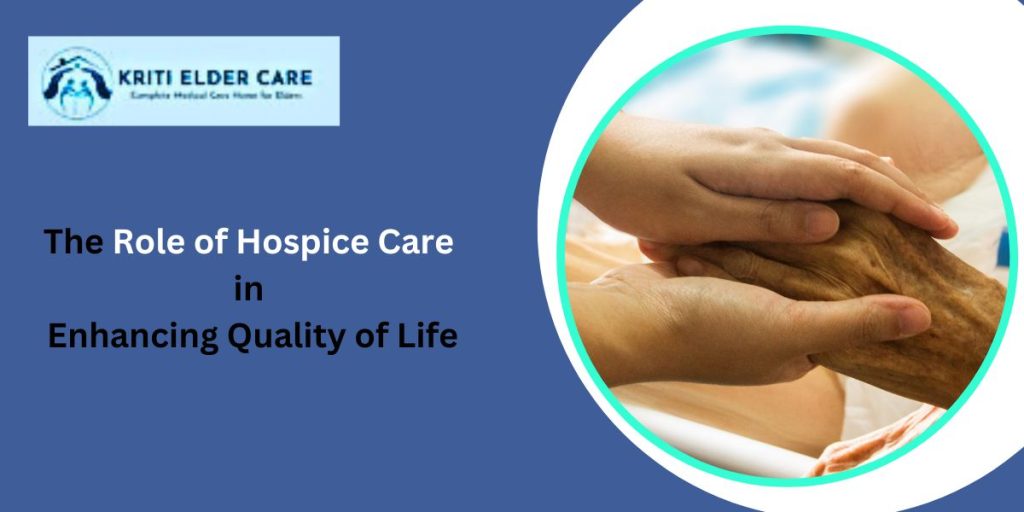Hospice care plays a vital role in ensuring dignity and comfort for individuals with terminal illnesses. Its primary goal is to enhance the quality of life, not just for the patients but also for their families, by addressing physical, emotional, spiritual, and social needs. Here’s everything you need to know about hospice care.
Table of Contents
What is Hospice Care?
It is a specialized form of support designed for individuals with terminal illnesses, focusing on comfort and quality of life rather than curative treatments.
Typically provided when a patient is expected to have six months or less to live, it addresses physical, emotional, social, and spiritual needs. It is delivered by a team of professionals, including doctors, nurses, social workers, counsellors, and chaplains, who collaborate to create a personalized care plan.
It can be provided at home, in hospice facilities, hospitals, or nursing homes, ensuring a familiar and supportive environment. Beyond symptom management and pain relief, it offers emotional and practical support to families, helping them cope with the challenges of caregiving and loss. The goal is to ensure dignity, comfort, and peace during life’s final stages.
Who Needs Hospice Care?
It is intended for individuals with terminal illnesses who have a life expectancy of six months or less, as certified by a healthcare provider. It is suitable for patients who choose comfort-focused care over aggressive treatments aimed at curing the disease.
Conditions commonly requiring hospice care include advanced cancer, end-stage heart or lung disease, advanced neurological disorders like Alzheimer’s or Parkinson’s, and other progressive illnesses.
It is also for individuals experiencing significant pain, frequent hospitalizations, or a noticeable decline in daily functioning. Beyond patients, hospice provides essential support for families, helping them cope with caregiving challenges and emotional stress.
How Can Hospice Care Enhance Life?
It enhances life by focusing on comfort, dignity, and meaningful experiences during an individual’s final stages of life. It shifts the emphasis from curing illness to ensuring patients and their families experience physical, emotional, and spiritual well-being.
1 Physical Comfort
One of the most vital ways hospice care enhances life is through effective pain and symptom management. Patients receive tailored treatments to alleviate discomfort, such as medications for pain, nausea, and shortness of breath.
Complementary therapies, like massage and music, are often integrated to improve overall well-being. These measures allow patients to remain as comfortable and active as possible, enabling them to enjoy their remaining time.
Emotional and Psychological Support
Hospice care addresses the emotional challenges that come with terminal illness. Patients and families often face anxiety, fear, and grief, which can feel overwhelming.
Professional counsellors and social workers provide therapy and coping strategies to help process these emotions. Families also receive guidance to improve communication and strengthen bonds, ensuring no one feels isolated or unsupported.
Spiritual Care and Meaningful Connections
It helps patients explore their beliefs, values, and sources of meaning, providing spiritual support that aligns with their faith or philosophy. Chaplains and spiritual counsellors assist patients in finding peace, while legacy projects—like memory books or recorded messages—allow them to leave meaningful gifts for their loved ones.
Practical and Social Support
In addition to emotional and physical care, hospice teams assist with practical concerns, such as caregiver training, resource coordination, and respite care for family members. Reducing the burden of day-to-day responsibilities ensures families can focus on spending quality time together.
How Long Does It Takes For Hospice Care to Be Effective?
The effectiveness of hospice care often depends on the timing of when it begins. It is designed to provide comfort and support during the last stages of life, typically when a patient has six months or less to live, as determined by a healthcare provider.
Many families hesitate to seek hospice care until the very end, often in the final days or weeks of a loved one’s life. While hospice care can still be beneficial in such cases, its full effectiveness is best realized when initiated earlier.
Starting hospice care sooner allows the team to build a comprehensive care plan, address pain and symptoms proactively, and provide ongoing emotional and practical support to both the patient and their family.
Within days of starting hospice care, patients often experience significant relief from unmanaged symptoms, such as pain, nausea, or breathing difficulties.
Emotional and psychological benefits, including reduced anxiety and fear, can also be observed early on as patients and families begin to feel supported. Over weeks or months, hospice care enhances the overall quality of life, enabling patients to live comfortably and engage in meaningful activities or conversations with loved ones.
The sooner hospice care begins, the more effective it can be in providing holistic support, ensuring patients and families fully benefit from its services.
Related Articles
The Role of Hospice Palliative Care in End-of-Life Journeys
Caregivers Near Me Providing End of Life Care Need Support

